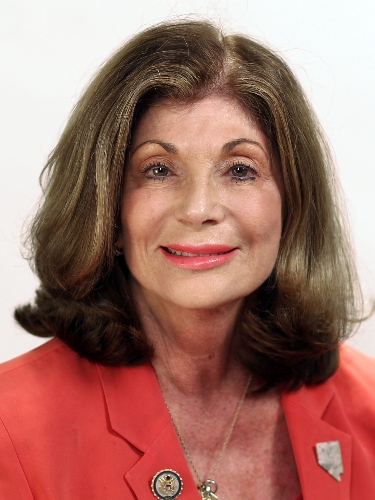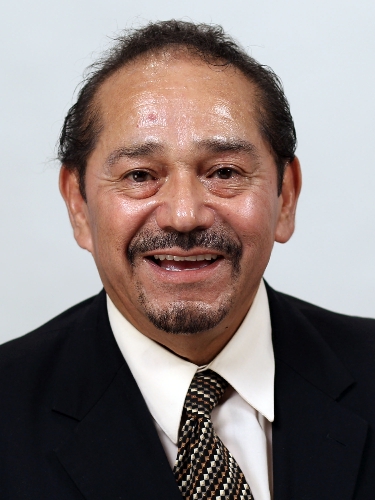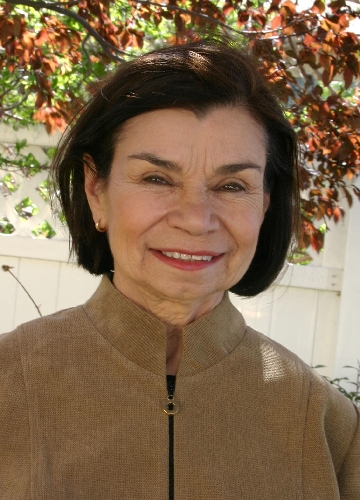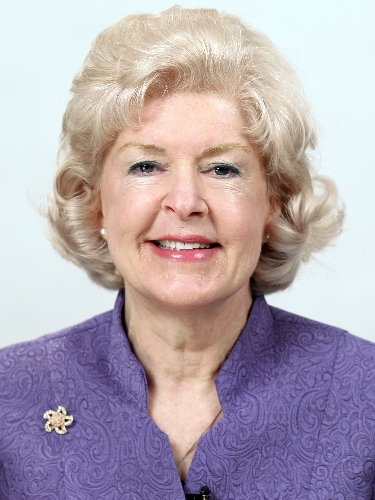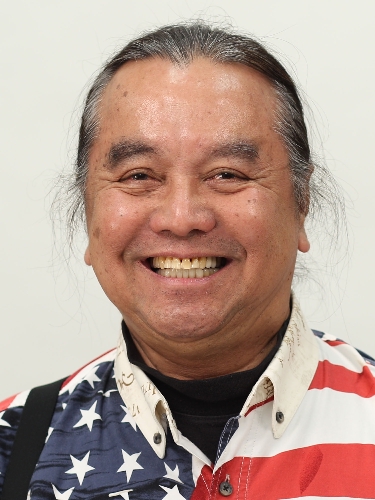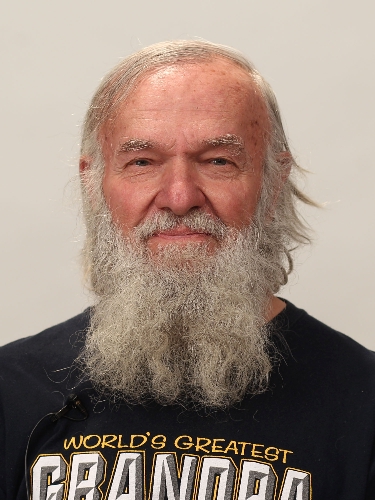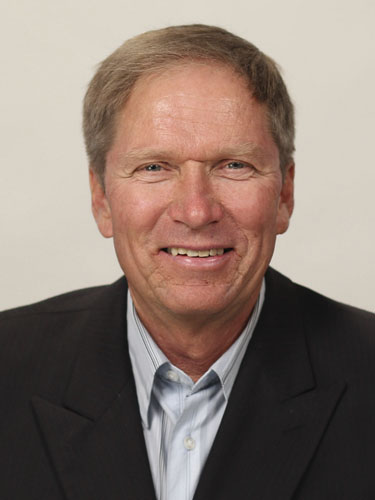2012 PRIMARY ELECTION: U.S. SENATE
U.S. Sen. Harry Reid might as well be on the ballot again in 2012.
The Senate majority leader's job is on the line once more, two years after he won a hard-fought re-election. This time, he's helping his Democratic protegée, U.S. Rep. Shelley Berkley, try to defeat U.S. Sen. Dean Heller, the GOP appointee, as Reid aims to keep Democratic Party control of the Senate.
Both Berkley and Heller face opposition in the June 12 primary election from four little-known candidates each. None of these candidates seems to have much chance of toppling the top two favored party candidates in one of the most competitive and closest U.S. Senate races in the country.
If Berkley and Heller emerge as their parties' nominees as expected, the Senate race will be a classic contest between two candidates who reflect the nation's sharp political divide, with Republicans pushing for a smaller, less costly government and Democrats expanding U.S. programs and aid.
The race also promises to test the vast Silver State's loyalties as Berkley, a popular Southern Nevada figure, challenges Heller, whose base of support spreads across the 16 Northern and rural Nevada counties he represented in Congress after his first U.S. House victory in 2006.
Heller, a former two-term secretary of state, has successfully run for statewide office before, but Berkley's 14 years representing urban Las Vegas in Congress gives her an advantage in Clark County.
"Heller has his work cut out for him in Clark County," said David Damore, a political science professor at the University of Nevada, Las Vegas. "He's just not known down here and Shelley is loved. And she shouldn't even bother going out to the rurals," where the GOP is dominant, he added.
If Berkley wins Clark County and Heller wins the rural counties and Washoe County - the state's other population center around Reno - the Senate race could be decided by a very narrow margin. Recent polls give Heller an edge, but mostly within the margin of error, making the race a dead heat.
The two candidates will likely match one another dollar for dollar when it comes to spending on the marquee contest - they each had more than $4 million cash in their campaign coffers at the end of March - and outside groups are expected to pour millions more into Nevada to influence the outcome.
In the end, however, the race could be decided by factors out of the control of the candidates.
Las Vegas Sands Corp. Chairman Sheldon Adelson, a generous multimillionaire GOP campaign donor, already has given to Heller's campaign and may help fund Republican efforts to defeat Berkley. Adelson and Berkley had a falling out in the 1990s over union issues when she worked for him.
Also hanging over Berkley's head is an ethics complaint filed by Nevada Republicans after a New York Times story last September raised questions about a possible conflict of interest she may have had when advocating on kidney health matters that appeared to help her husband's medical practice.
In March, the House Ethics Committee announced it was reviewing the allegations against Berkley. Panel leaders said they expected to announce a course of action before July 9. It could range from dismissal of the complaint to convening a subcommittee to conduct a full investigation.
"The wild card right now is what the Ethics Committee does," Damore said, suggesting Berkley's Senate chances hang on the outcome. "And we won't know that until after the primary."
Democrats now control the 100-seat Senate 53-47. Republicans must pick up at least four seats nationwide to win a majority and oust Reid from the leadership job he has held since January 2007.
Heller was appointed to the Senate a year ago after U.S. Sen. John Ensign, R-Nev., resigned following a sexual affair and ethics investigation. If Heller loses the GOP seat to Berkley, it would increase Reid's chances of maintaining the Democratic majority and his power post.
On the campaign trail, Berkley has been promoting her work for veterans, women's health and preserving Medicare and Social Security as is for seniors. Appealing to the influential Latino vote in Nevada, she also has been pushing for immigration reform, including the DREAM Act. It could provide a path to U.S. citizenship for children of illegal immigrants who attend college or join the military.
Berkley casts herself as a fighter for the struggling middle class.
"I believe that my job is to make sure that generations that come after me have the same opportunities that my family had when we first came to Nevada," Berkley said in a recent speech to the Las Vegas Chamber of Commerce. "I believe the top priority of the next U.S. senator must be helping Nevada families not only to survive but to grow and prosper."
Heller has focused on getting the nation's federal budget and record $16 trillion debt under control, arguing that future generations will suffer unless the U.S. government gets its fiscal house in order.
For that reason, Heller voted against raising the U.S. debt limit. He also introduced legislation that would stop pay for members of Congress until they pass a budget, now 1,000-plus days overdue. He also has voted twice for a plan by U.S. Rep. Paul Ryan, R-Wis., to reform Medicare by changing it to a voucher-like program for younger Americans while maintaining it for those 55 years and older.
"We have a spending problem in Washington, D.C.," Heller said in a recent appearance before a University of Nevada, Las Vegas class for senior citizens. "Everyone in Washington, D.C., wants to make sure that Medicare will continue for generations to come. The question is how do we preserve it for future generations. If we do nothing, the system would go bankrupt."
Here's a look at the other candidates in the Senate primary race:
REPUBLICANS
■ Eddie "In Liberty" Hamilton - A perennial candidate, Hamilton last ran for the Democratic Party nomination in the 2010 U.S. Senate race, losing to Reid. He switched to the GOP to challenge Heller in 2012, running as the "liberty candidate" who supports GOP presidential candidate U.S. Rep. Ron Paul, R-Texas.
Hamilton wants to lower the legal drinking and gambling age to 18 from 21 so young veterans returning home from the wars in Iraq and Afghanistan can get jobs in Nevada casinos.
"If they can fight, they can gamble," he said, adding lowering the gambling and drinking age also might draw more tourists and create thousands of jobs to boost the economy. "This is a great idea."
■ Carlo "Nakusa" Poliak - Poliak has been running for office since the 1970s and has yet to win a race. He gave himself the ballot nickname "Nakusa" in recognition of his track record: It means "unwanted" in India.
He also ran for the U.S. Senate two years ago as a Democrat against Reid.
Poliak said he's running to preserve Medicare and Social Security and push for lowering the retirement age to 60 as in some European countries. He said the federal government can pay for it by cutting subsidies to oil companies and halting tax breaks to develop green energy.
"I will probably be forced to retire with an injury on the job," said the sanitation worker. "The ability to save money and have a little nest egg is not attainable any more."
■ Sherry Brooks - Brooks quickly dropped out of the U.S. Senate race in 2010 but decided to stick with it this time.
The Reno resident said she didn't know who else was running in this year's contest, but she said she planned to visit Las Vegas at some point to campaign. She wouldn't talk about her priorities.
Asked why she was running, Brooks suggested she didn't like negative campaigns.
"I don't like all that opposition research," she said. "I want to talk about the issues."
■ Richard Charles - Charles said he was spending one month this spring on a "whistle-stop tour to take America's pulse" as part of his run for Congress. A supporter of GOP presidential candidate Paul, Charles said his goal is to support and defend the Constitution and liberty as does the Texas congressman.
He said both the Democratic and Republican party leaders have violated the Constitution by going to war without congressional approval and passing laws that strip terror suspects of their rights. He also decries expansion of government, which has bloated the federal budget and increased debt.
"My goal is to represent all Nevadan and American citizens, rather than" the political party organizations and "big donor special interests," Charles said.
DEMOCRATS
■ Nancy Price - Price has run against Heller before, as the Democratic nominee in the 2010 House race. A former University of Nevada regent, Price is a party regular who identifies with the "Occupy Wall Street" movement that's battling for economic rights for the poor and middle class against the 1 percent rich.
"I'm giving those people a place to go" on the ballot, Price said of her candidacy. "My slogan is revolt with a primary vote," added Price, saying she's a more "hard core Democrat than Shelley."
Price said she didn't agree with Berkley's vote to extend the Bush tax cuts, for example, and believes taxes should be raised on the wealthy and on corporations that enjoy too many tax loopholes.
■ Barry Ellsworth - Ellsworth said he's running for Congress because he wants to replace lawmakers who "have messed up the country entirely" by passing laws that let Wall Street run wild, ultimately leading to the country's near financial collapse several years ago when banks began to fail.
"It's like a man giving two really pretty hookers the keys to his brand new home as well as the combination to his safe filled with dollars, gold, jewelry and diamonds. And then he waves goodbye and goes on an extended vacation," Ellsworth said. "And when he comes back and finds all the diamond, gold and jewelry gone, he wonders what happened."
He said Congress needs to change the laws to get Wall Street financial institutions out of the banking and insurance businesses, which he said led to the problems in the first place.
■ Steve Brown - Brown describes himself as a fiscal conservative and a social liberal. He believes marijuana should be legalized, for example, but thinks Congress must do more to cut growing budget deficits.
"I think the American people as a whole are in denial," Brown said. "Baby Boomers are going to be retiring en masse by 2017, and the Social Security Trust Fund at zero. Instead of just complaining about it, I decided to run. I'm so sick of these people. They're wrecking the country."
■ Louis Macias - Macias said he wants to stop another U.S. "war of foreign policy," a reference to the possibility of joining a new Mideast conflict to protect Israel from Iran's suspected nuclear weapons program.
Macias said he was on burial detail during the Vietnam War "and had to bury a lot of kids."
"I believe that our constitutional process clearly requires the Congress to declare war, and there was no declaration of war in Vietnam," Macias said. "I believe that we are about to get into a war without this constitutional process, and that this is no longer acceptable."
Contact Laura Myers at lmyers@reviewjournal.com or 702-387-2919. Follow @lmyerslvrj on Twitter.
U.S. SENATE DUTIES
U.S. senators are elected to six-year terms in the upper house of Congress. Their main duties involve passing laws, allocating spending, reviewing the performance of federal agencies and protecting the interests of their states. Senators also confirm executive branch nominees. Senators are paid $174,000 per year.
LAS VEGAS REVIEW-JOURNAL



